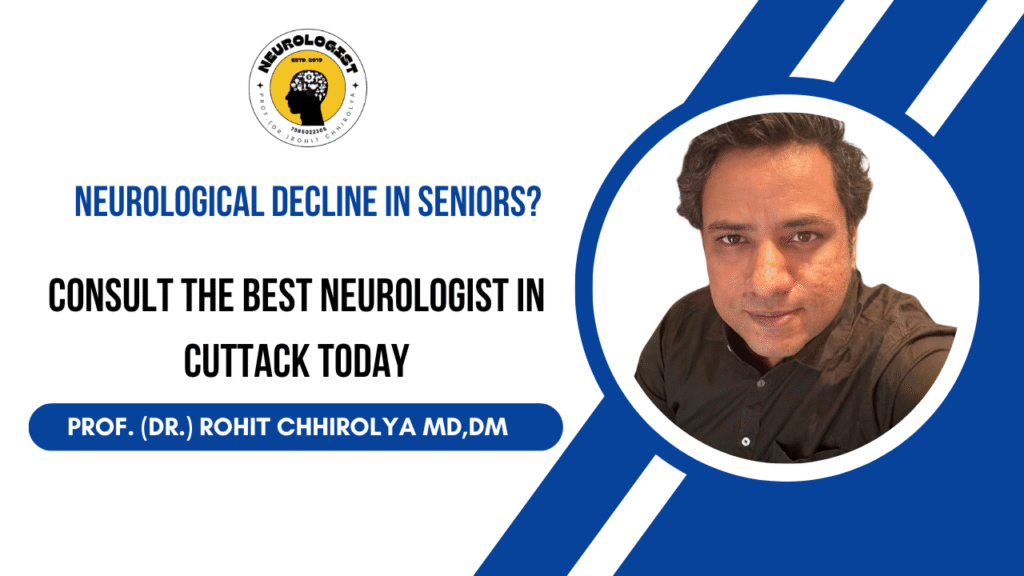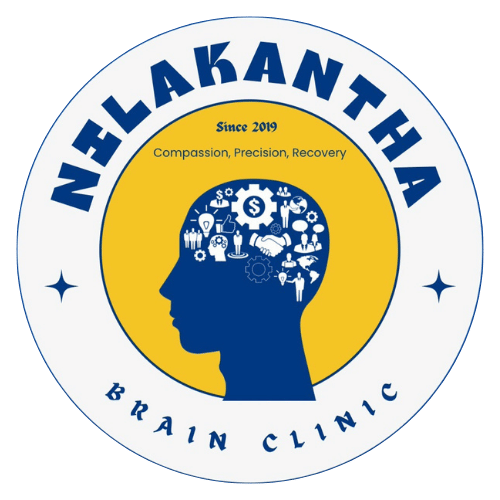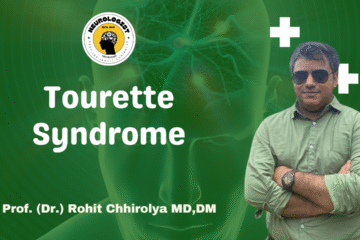
The Silver Tsunami: Why Brain Health Can’t Wait
By 2030, India will have over 198 million seniors. While aging is inevitable, neurological decline in seniors isn’t. Cognitive impairment robs independence, yet research confirms: up to 40% of dementia cases are preventable. This guide reveals actionable strategies to safeguard your brain against time’s tide.
Understanding Neurological Decline in Seniors: Beyond “Normal Aging”
Neurological decline in seniors manifests as:
- Memory lapses affecting daily tasks
- Slowed information processing
- Reduced executive function (planning, decision-making)
- Mood changes or social withdrawal
While some cognitive slowing occurs naturally, rapid decline often signals underlying conditions:
- Neurodegenerative Diseases: Alzheimer’s, Parkinson’s, Lewy Body Dementia.
- Vascular Issues: Stroke, micro-infarcts from hypertension (Lancet Study)
- Metabolic Disorders: Diabetes-induced brain changes (Diabetes Journal)
7 Science-Backed Pillars to Prevent Neurological Decline in Seniors
1. The Brain-Protective Plate: Nutrition Essentials
Why it works: Nutrients combat inflammation and oxidative stress.
- Mediterranean-MIND Diet Hybrid: Leafy greens, berries, nuts, fatty fish, olive oil
- Key Compounds: Omega-3s (DHA/EPA), flavonoids, B vitamins, vitamin E
- Critical Avoidance: Ultra-processed foods, excess sugar, trans fats
2. Aerobic Exercise: Your Brain’s Irrigation System
Why it works: Boosts cerebral blood flow by 15-25% and grows the hippocampus.
- Optimal Protocol: 150 mins/week moderate activity (brisk walking, cycling, swimming)
- Balance Training: Tai Chi reduces fall risk by 50% .
3. Cognitive Reserve Building: Mental Cross-Training
Why it works: Challenged brains develop alternative neural pathways.
- Novel Skill Acquisition: Learn languages, instruments, or digital tools
- Strategic Games: Chess, bridge, or apps targeting processing speed
- Creative Pursuits: Painting, writing, gardening
4. Sleep Optimization: The Nightly Brain Detox
Why it works: Glymphatic system clears amyloid-beta during deep sleep.
- Non-Negotiables:
- 7-8 hours nightly
- Consistent sleep-wake schedule
- Sleep apnea screening
5. Social Engagement: Neural Stimulation Through Connection
Why it works: Social isolation increases dementia risk by 50%.
- Effective Activities:
- Weekly group classes (yoga, art)
- Intergenerational programs
- Volunteer work
6. Stress Resilience: Cortisol Control
Why it works: Chronic stress shrinks the hippocampus.
- Proven Techniques:
- 12-minute daily meditation
- Nature immersion therapy
- Breathing exercises (4-7-8 method)
7. Vascular Health Optimization
Why it works: 80% of cognitive decline links to vascular issues.
- Key Monitoring:
- Blood pressure (<120/80 mmHg)
- HbA1c (<5.7%)
- Cholesterol (LDL <100 mg/dL)
- Management: Collaborate with cardiologists and the best neurologist in Cuttack
When Prevention Needs Partnership: Neurology’s Role
Proactive strategies work best when combined with expert oversight. Warning signs requiring neurological evaluation:
- Getting lost in familiar areas
- Repeatedly asking the same questions
- Personality/mood shifts
- Unexplained movement difficulties
Dr. Rohit Chhirolya (DM – Neurology) at Nilakantha Brain Clinic specializes in:
✓ Early Detection: Advanced neuroimaging (MRI, PET-CT), cognitive assessments (MoCA)
✓ Personalized Prevention Plans: Integrating lifestyle, nutrition, and medical management
✓ Neurodegenerative Disorder Care: Evidence-based protocols for Alzheimer’s, Parkinson’s, etc.
✓ Vascular Cognitive Protection: Stroke risk reduction strategies
Why Cuttack Seniors Choose Nilakantha Brain Clinic
As the best neurologist in Cuttack, Dr. Chhirolya’s clinic offers:
- Comprehensive Geriatric Neurology Services: From baseline testing to complex case management
- Multidisciplinary Approach: Coordination with physiotherapists, nutritionists, psychologists
- Family Education: Empowering caregivers with practical brain-health strategies
Take Action Today:
- Baseline Cognitive Assessment: Establish your brain health starting point
- Personalized Risk Evaluation: Identify modifiable factors
- Prevention Protocol Design: Science-backed plan for your unique needs
The Future is Bright: Success Stories
Case Study: 72-year-old male with mild cognitive impairment (MCI) reversed MoCA scores from 22 to 27 in 18 months through:
- Mediterranean diet modification
- Daily 30-minute brisk walking + tai chi
- Cognitive training apps
- Quarterly neurology follow-ups
Research Insight: FINGER study showed 25% cognitive improvement in at-risk seniors through multidomain interventions (Lancet)
FAQs
Q: What’s the difference between normal forgetfulness and early dementia?
A: Normal aging may involve occasionally misplacing keys. Warning signs of Neurological Decline in Seniors include:
• Forgetting recently learned information repeatedly
• Struggling with familiar tasks (e.g., using a phone)
• Confusion about time/place
If symptoms disrupt daily life, consult the best neurologist in Cuttack for a MoCA screening.
Q: Can a vegetarian diet protect against Neurological Decline in Seniors?
A: Absolutely! Focus on:
• Omega-3s: Walnuts, flaxseeds, chia seeds, algae supplements
• B12: Fortified foods/supplements (critical for vegetarians)
• Plant proteins: Lentils, chickpeas, tofu
• Antioxidants: Colorful berries, spinach, turmeric
Dr. Chhirolya creates personalized plans at Nilakantha Brain Clinic.
Q: How does diabetes accelerate brain aging?
A: High blood sugar:
• Damages blood vessels → reduces brain oxygen
• Triggers inflammation → harms neurons
• Increases amyloid plaque buildup
Key stat: Diabetics have 73% higher dementia risk (NIH Study).
Action: Monitor HbA1c quarterly if diabetic.
Q: Are “brain training apps” effective for seniors?
A: Yes, if:
• They adapt difficulty (e.g., Lumosity, Peak)
• Paired with real-world activities (e.g., learning recipes)
• Used 20 mins/day, 5 days/week
Pro Tip: Combine apps with social interaction (e.g., puzzle groups).
Q: Can high blood pressure cause Neurological Decline in Seniors?
A: Absolutely. Hypertension:
• Weakens small brain vessels → silent strokes
• Accelerates white matter damage
• Accounts for 40-50% of vascular dementia cases
Target BP: <120/80 mmHg. The best neurologist in Cuttack can tailor vascular protection plans.
Q: My parent has mobility issues. What exercises work?
A: Safe options include:
• Chair yoga: Improves flexibility + reduces stress
• Resistance bands: Builds muscle without falls risk
• Water aerobics: Low-impact cardio
Q: Does family history doom me to dementia?
A: Not at all! While genetics play a role, lifestyle dominates:
• 70-year-olds with APOE4 gene (high-risk) can still reduce dementia risk by 40% through:
Mediterranean diet
Regular exercise
Blood pressure control
→ Hope: Lancet Commission Report
Your Brain’s Second Act
Neurological decline in seniors isn’t inevitable. By combining:
- Targeted lifestyle interventions
- Vascular risk management
- Professional guidance from Cuttack’s best neurologist
You can significantly preserve cognitive vitality. Start today – every brain-healthy choice creates neural reserves for tomorrow.
Your Next Steps for stopping Neurological Decline in Seniors :
- Implement one brain-health strategy this week
- Schedule a baseline cognitive assessment
- Share this knowledge with aging loved ones
Consult the Best Neurologist in Cuttack for Neurological Decline in Seniors:
- Book an Appointment: Nilakantha Brain Clinic
- Call: 7985022365
- Stay Connected for More Brain Health Strategies:
→ Facebook: NHPians
→ Instagram: Dr. Rohit Chhirolya
→ YouTube: @drrohitchhirolya

